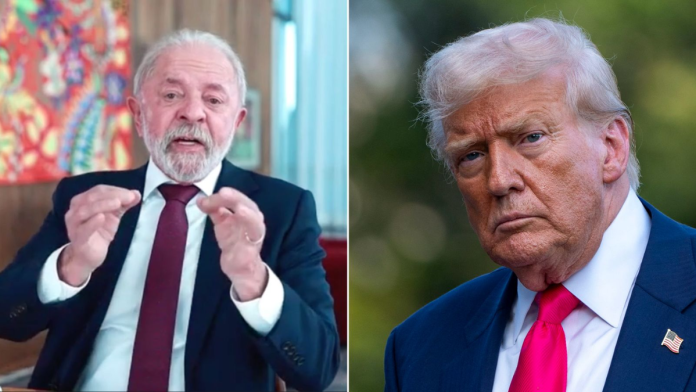A powerful message was delivered during an international gathering when Brazil’s President Luiz Inácio Lula da Silva declared that the United States is “not an empire.” His words were directed at Donald Trump, who had earlier spoken about sanctions and economic threats against Brazil.
The remark drew attention because it was made in front of world leaders and diplomats. Lula reminded the global audience that sovereignty — the right of each country to govern itself — must always be respected. He argued that no single nation has the authority to act like a ruler over others. According to him, every country, big or small, has the right to decide its own path.
This public stand was also a response to the United States’ use of sanctions as a political tool. Lula made it clear that such methods damage relationships between countries and often hurt ordinary people more than governments. His sharp tone highlighted his dissatisfaction with what he called unfair interference in the affairs of other nations.
Defending Sovereignty And Fairness
During his speech, President Lula emphasized that all nations deserve equal treatment. He insisted that sovereignty is not just a word but a principle that protects the dignity of each country. For him, threats and sanctions are ways of controlling others, and that is something he rejected firmly.
He explained that sanctions often stop trade, slow economic growth, and create difficulties for regular citizens. From his point of view, this makes them unjust. Lula’s comments echoed the feelings of many countries that have also been targeted by such measures in the past.
The Brazilian leader also defended his nation’s legal system. He pushed back against Trump’s earlier claims of corruption and repression, saying Brazil’s judiciary works independently and should not be disrespected. By doing so, he linked domestic debates with the larger international issue of foreign pressure.
Lula further suggested that powerful countries often ignore the struggles of smaller or developing nations. He said his words were not only about Brazil but also about the wider principle of fairness in global politics. His speech made Brazil’s concerns part of a broader global conversation about respect and equality.
A Clash Of Words And Styles
The clash between the two leaders did not end with speeches. Earlier, Donald Trump had openly questioned Brazil’s governance, accusing it of corruption and repression. These statements set the stage for Lula’s sharp and public reply.
Trump slams Bolsonaro’s 27-year prison term as U.S. weighs punishing Brazil
Lula’s words carried a clear message: Brazil would not be treated as a nation that could be pressured or controlled. His call for respect struck a chord with many countries that share similar experiences of facing economic or political pressure.
Yet, despite the heated exchange, there was also a softer moment. When Lula and Trump met privately after their public remarks, reports say that Trump referred to Lula as “a nice man.” This unexpected comment showed how, in global politics, tension can often be mixed with attempts at diplomacy.
The confrontation reflects a larger struggle in international relations — the balance between power and respect. On one side, big countries rely on sanctions, tariffs, and threats to get what they want. On the other, leaders like Lula push back to defend independence and dignity.
By declaring that the “US is not an empire,” Lula gave voice to a broader sentiment among many nations that global rules should not be dictated by one single country. His words turned into a powerful rallying point for fairness, equality, and mutual respect among states.


